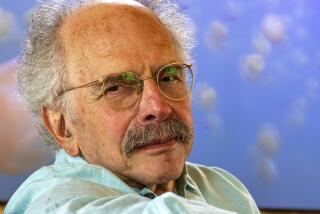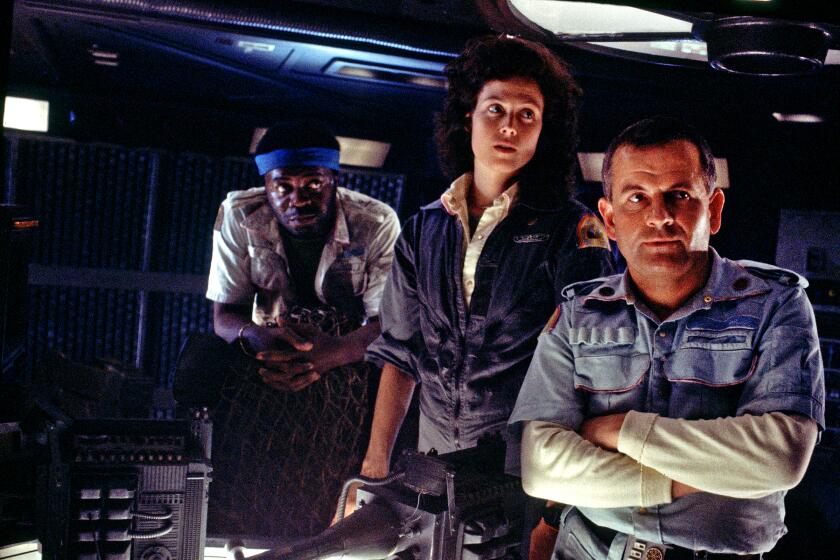And the critics say...Fassbender shines in ‘Steve Jobs,’ a compelling film about a complex man
“Steve Jobs” could be seen as yet another big-screen examination of the Apple co-founder, but the critical consensus is that the Danny Boyle-directed portrait may be the most compelling Jobs film yet.
Written by Aaron Sorkin, “Steve Jobs” breaks away from the traditional biopic formula and tells the story of the tech entrepreneur in three acts tied to specific product launches: 1984’s Macintosh, 1988’s NeXT computer and 1998’s iMac.
Each of these acts features Jobs interacting with key people in his life, including Apple co-founder Steve Wozniak, marketing chief Joanna Hoffman and Jobs’ daughter Lisa.
Critics so far seem taken with this approach; the film currently rates 90% on review aggregate site Rotten Tomatoes. In addition to Sorkin and Boyle, reviews have also praised the acting by stars Michael Fassbender and Kate Winslet, as well as the supporting cast.
SIGN UP for the free Indie Focus movies newsletter >>

Kenneth Turan reviews ‘Steve Jobs’ starring Michael Fassbender. Video by Jason H. Neubert.
In his review for The Times, film critic Kenneth Turan says “‘Steve Jobs’ is a smart, hugely entertaining film that all but bristles with crackling creative energy. What it is not is a standard biopic.”
Turan, of course, is aware that “Steve Jobs” is not the most factually accurate account of Jobs’ life. But that does not take away from the quality of the film.
“[A]s the filmmakers acknowledge,” he writes, “this is a dramatization of a life, an impressionistic construct that makes such rich theatrical use of the real building blocks of Jobs’ existence that it convinces us of at least its emotional reality.”
Turan commends Sorkin’s dialogue, Boyle’s ability to make “the potentially static visually interesting” and, above all, Fassbender.
“Though the film he stars in is very much a group effort,” he says, “it is hard to imagine ‘Steve Jobs’ without the magnetic Fassbender, who eats parts like this for breakfast, in the starring role.”

A.O. Scott of the New York Times similarly asserts that he is unconcerned with the film’s accuracy because “cinematic biographies of the famous are not documentaries. They are allegories.”
“‘Steve Jobs’ is a rich and potent document of the times, an expression of both the awe that attends sophisticated new consumer goods and the unease that trails in the wake of their arrival,” Scott writes. “[The film] is a creation myth written by a skeptic. Whether or not we worship Steve Jobs, the world most of us live in is the one he made.”
On actors Fassbender, Winslet, Jeff Daniels, Seth Rogen and Michael Stuhlbarg, he says “they are all, as you might expect, really good.”
For Scott, the best thing about the movie is that it works both as a tribute and critique of the complex entrepreneur because of “how messy it is. It sprawls, it sags, it grinds its gears and at times almost crashes from frantic multitasking. And yet the result is not chaos but coherence.”
USA Today’s Brian Truitt also commends the film for this duality in his review, writing “‘Steve Jobs’ is a fascinating study of a man, explaining who he was but never making a judgment about who he is. The movie lets audiences compute that for themselves.”
He calls Fassbender “the definitive onscreen Steve Jobs” and that there is “no need to reboot [Steve Jobs] again, because Hollywood has finally found its man.”
“Fassbender gives his lines measured weight and gravitas in his interpretation of the late enigmatic legend,” Truitt writes. “He’s at times a cruel jerk and moments later a loving soul.”
Among the other highlights for Truitt was Sorkin’s “cracking good script.”
Peter Travers of Rolling Stone likewise exclaims that Sorkin’s script “is sheer brilliance.”
“‘Steve Jobs’ [is] written, directed and acted to perfection, and so fresh and startling in conception and execution that it leaves you awed,” he writes.
Travers insists “the actors could not be better” and specifically calls out Fassbender for giving “a towering performance of savage wit and limitless firepower.”
Joe Morgenstern of the Wall Street Journal joins in the Fassbender praise.
“Controversial in life, Apple’s co-founder eludes categorization on screen, though that’s not true of Michael Fassbender’s portrayal,” Morgenstern writes, “which is consistently fascinating.”
A highlight for him, however, was the dynamic between Fassbender’s Jobs and Winslet’s Joanna Hoffman.
“‘Steve Jobs’ is extremely well made, and held together dramatically, if not emotionally, by [the] relationship ... in which Jobs carries on like a fractious unicorn in a high-tech zoo while Joanna Hoffman, Apple’s marketing guru, functions as his keeper,” says Morgenstern.
And again, while the film may not be completely factually correct, “the best approach may be to take the film on its own impressionistic terms,” according to Morgenstern, who writes that “‘Steve Jobs’ [ultimately] gives the strong impression of a tortured titan struggling with himself and those around him to change the world, and succeeding more than most mortals do.”
Twitter: @tracycbrown
More to Read
Only good movies
Get the Indie Focus newsletter, Mark Olsen's weekly guide to the world of cinema.
You may occasionally receive promotional content from the Los Angeles Times.











